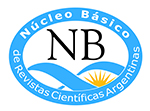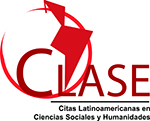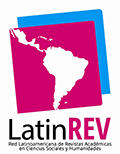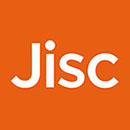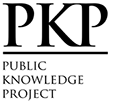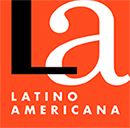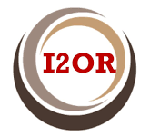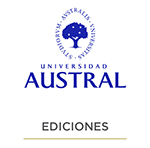The Spanish Office of Copyright and Related Rights (OEDAC). Comparative study with other countries in Europe and América
DOI:
https://doi.org/10.26422/RIPI.2025.2200.almKeywords:
Spanish Copyright Office and Related Rights, copyright, related rights, INDAUTOR, register, functionsAbstract
This article analyzes Spanish Bill number 121/000013 concerning the future creation of the Spanish Office of Copyright and Related Rights (OEDAC), whose latest version was published on November 7, 2024, and compares other equivalent offices or institutes in other countries in Europe and America, such as INDAUTOR in Mexico, focusing the analysis on the functions and competencies of this new Office. To achieve this, firstly, Copyright will be defined, along with its importance, its Registration, and how it can be protected. Secondly, the functions and activities of the OEDAC as outlined in the bill's rationale will be presented. Following that, a comparative analysis will be conducted with European countries such as Portugal, Belgium, Italy, and the United Kingdom, as well as North American countries such as Mexico and the United States. Finally, the reader will find some conclusions and recommendations.
Downloads
References
Almaraz Palmero, R. (2024). ¿Cómo será la nueva oficina española de Derechos de Autor? Blog de Derecho de OBS Business School. https://www.obsbusiness.school/blog/como-sera-la-nueva-oficina-espanola-de-derechos-de-autor
Asociación Internacional para la Protección de la Propiedad Intelectual. (2019). 2019 - Study question. Copyright in artificially generated works. https://www.aippi.org/content/uploads/2022/11/Resolution_Copyright_in_artificially_generated_works_English.pdf
Asociación Internacional para la Protección de la Propiedad Intelectual. (2023). 2023 - Study Question - Copyright. Collecting societies. https://www.aippi.fr/upload/2023-Congres-Istanbul/Resolutions-Istanbul/Q286--Adopted-Resolution---Copyright.pdf
Autorità per le Garanzie nelle Comunicazioni. (2 de noviembre de 2017). Documento Allegato: Misure per contrastare la pirateria online. https://www.agcom.it/sites/default/files/migration/attachment/Allegato%202-11-2017.pdf
Blanque Rey, L. y Paz Ares, I. (2014). Propiedad Intelectual: La oficina española de Derechos de Autor y conexos: un paso suficiente. Instituto de Derecho y Ética Industrial.
Cardona, N. J. (2024). El «uso transformador» de las empresas de IA: Entre la libertad creativa y los derechos de propiedad intelectual. IDP. Revista d’Internet, Dret i Política, (40), 1-11. https://doi.org/10.7238/idp.v0i40.421926
Comisión Europea. (s.f.). Derechos de propiedad intelectual e industrial. https://commission.europa.eu/business-economy-euro/doing-business-eu/intellectual-property-rights_es
European Union Intellectual Property Office. (2024). Online copyright infringement in the EU: 2024 report. https://euipo.europa.eu/tunnel-web/secure/webdav/guest/document_library/observatory/documents/reports/2024_online_copyright_infringement/2024_online_copyright_infringement_in_the_EU_FullR_en.pdf
Federación del Gobierno de Bélgica. (s.f.-a). European Directive on Copyright. Ministerio de Economía de Bélgica. https://economie.fgov.be/en/themes/intellectual-property/intellectual-property-rights/copyright-and-related-rights/copyright/european-directive-copyright
Federación del Gobierno de Bélgica. (s.f.-b). Online piracy. Ministerio de Economía de Bélgica. https://economie.fgov.be/en/themes/intellectual-property/intellectual-property-rights/copyright-and-related-rights/sanctions-and-legal-actions/online-piracy
Fritz, J. (2024). The notion of ‘authorship’ under EU Law—Who can be an author and what makes one an author? An analysis of the legislative framework and case law. Journal of Intellectual Property Practice, 19(7), 552-556. https://doi.org/10.1093/jiplp/jpae022
Izyumenko, E. (2024). Intellectual property in the age of the environmental crisis: How trademarks and copyright challenge the human right to a healthy environment. International Review of Intellectual Property and Competition Law. IIC 55, 864-900. https://doi.org/10.1007/s40319-024-01478-0
Kuai, J. (2024). Unravelling copyright dilemma of AI-generated news and its implications for the institution of journalism: The cases of US, EU, and China. New Media & Society, 26(9), 5150-5168. https://doi.org/10.1177/14614448241251798
Ministerio de Cultura. (2024). Proyecto de Real Decreto por el que se regula la concesión de licencias colectivas ampliadas. https://www.cultura.gob.es/en/dam/jcr:95c986c7-893f-46c6-81d4-3ba822a6696e/proyecto-rd-licencias-colectivas.pdf
Observatorio de la EUIPO. (diciembre de 2024). La vulneración de los Derechos de Autor en línea en la Unión Europea. Películas, música, publicaciones, software y televisión (2017-2023). https://www.euipo.europa.eu/en/publications/online-copyright-infringement-in-the-european-union-films-music-publications-software-and-tv-2017-2023
Organización Mundial de la Propiedad Intelectual. (1886). Convenio de Berna para la Protección de las Obras Literarias y Artísticas. https://www.wipo.int/treaties/es/ip/berne/index.html
Safe Creative. (11 de septiembre de 2024). Internet Archive pierde apelación en caso sobre préstamo de libros digitales. https://www.safecreative.org/tips/es/internet-archive-pierde-apelacion-en-caso-sobre-prestamo-de-libros-digitales/
Senftleben, M. (2024). The unproductive “overconstitutionalization” of EU copyright and trademark law: Fundamental rights rhetoric and reality in CJEU jurisprudence. International Review of Intellectual Property and Competition Law, 55(2024), 1471-1514. https://doi.org/10.1007/s40319-024-01527-8
Unión Europea. (3 de febrero de 2025). Derechos de Autor. https://europa.eu/youreurope/business/running-business/intellectual-property/copyright/index_es.htm
Urtiaga Escobar, R., (2002). Los sistemas de Derechos de Autor y copyright en la actualidad ¿contraposición o simbiosis? Universidad Nacional Autónoma de México.
Downloads
Published
Issue
Section
License
This license allows the copy, distribution, exhibition and representation of the work provided authorship is acknowledged and the work is properly quoted. Commercial use of the original work or the generation of derived works are not allowed.
The authors hereby guarantee the right to the first publication of the work to the Revista Iberoamericana de la Propiedad Intelectual.



